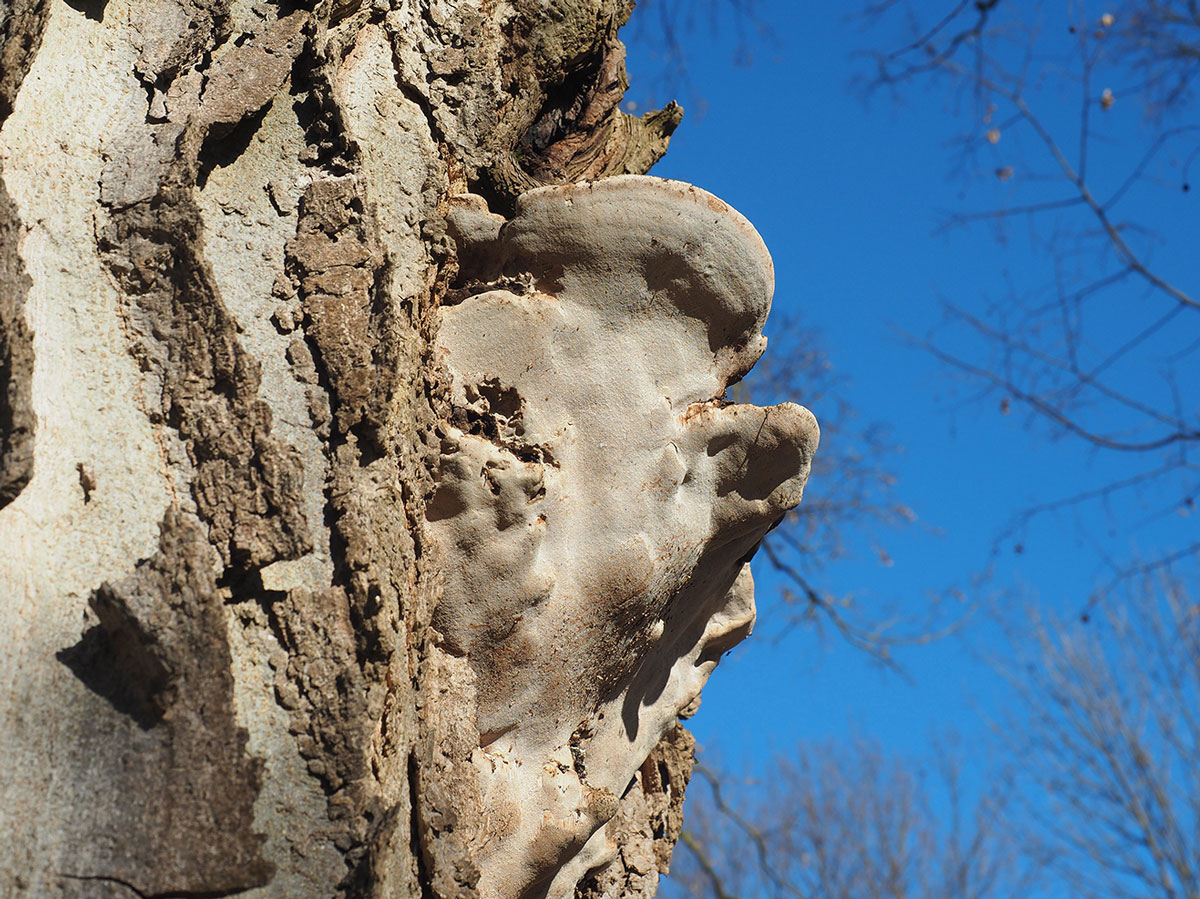Die Folgen des Klimawandels lassen sich an der Beschaffenheit des heimischen Baumbestands bereits sehr gut ablesen. „In den letzten Jahrzehnten ist ein verstärktes Baumsterben vor allem im städtischen Bereich zu verzeichnen“, erklärt der Leiter des Botanischen Gartens der Universität Graz, Christian Berg. „Längere Trockenperioden und Temperaturanstiege setzen den Pflanzen zu. In der Steiermark tragen auch die feuchteren Sommer der letzten Jahre dazu bei, dass holzzerstörende Pilze bessere Wachstumsbedingungen vorfinden.“ Neu eingeschleppte Pilze und Schädlinge befallen daher immer mehr Pflanzen.
Von diesen Folgen bleibt auch der Bestand des Botanischen Gartens in Graz nicht verschont: Einer der ältesten Bäume – der Amerikanische Zürgelbaum – ist rund 100 Jahre alt und derzeit ein sichtbares Zeichen der aktuellen klimatischen Veränderungen. Seit vielen Jahren ist er vom Eschenbaumschwamm, einem gefährlichen Baumschädling, befallen. Der Parasit hat mittlerweile einen großen Holzanteil im Inneren zersetzt und mehrere Fruchtkörper ausgebildet. Nur durch pflegerische Maßnahmen konnte eine Fällung bisher verhindert werden. „Da aber ein Neuzuwachs im Holz seit einigen Jahren ausbleibt, ist die Stabilität des Baumes nicht mehr gewährleistet, und eine Fällung ist mittlerweile unausweichlich geworden“, betont Berg. Diese wird noch Mitte Februar stattfinden.
„Lebendes“ Forschungsobjekt
Nicht alle Stücke des Amerikanischen Zürgelbaums werden danach entsorgt: Um die Forschungen zu „Flechten und Moosen“ voranzutreiben, lässt das Institut für Biologie den Schädling der Zürgelbaum-Äste im Rahmen einer Bachelorarbeit wissenschaftlich untersuchen.
Auch wenn dieses wertvolle Exemplar eine große Lücke in den Bestand des Botanischen Gartens hinterlassen wird, für Nachwuchs ist gesorgt: Die GärtnerInnen haben bereits im Vorfeld Sämlinge weiter kultiviert und werden an geeigneter Stelle eine Ersatzpflanzung vornehmen. Wir hoffen, dass die nächste Generation sich besser an das verändernde Klima anpasst“, sagt Christian Berg.
